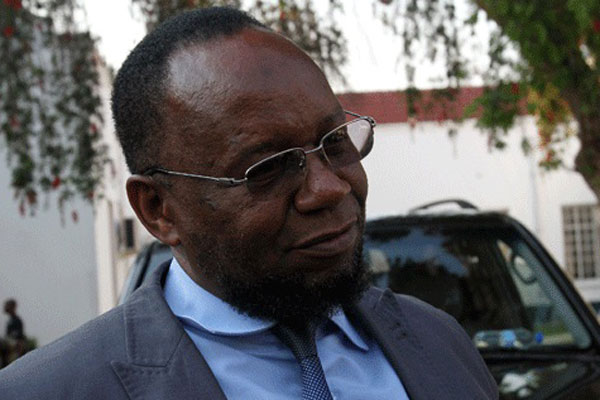
Many pupils will have come home this week with a school report recording their progress and efforts for this past term. How would we feel if our child scored 59 out of 60 — happy? More than likely we would be delighted! However, would we be happy if our child used 59 out of 60 seconds in one minute? Again, many perhaps would but we should not. For if we do not use just one second every minute it means we waste one minute in one hour; 24 minutes every day; 168 minutes (almost three hours) in a week; 672 minutes (over 11 hours) in a month and over 145 hours (i.e over six days) in a year — and if we live to be 70 years old, we will have wasted over one full year.
by Tim Middleton
We have looked previously at the first crucial lesson on becoming a man (as opposed to a success) from Rudyard Kipling’s classic poem If (Keep your head); his final comment in that poem on being a man is equally vital: “If you can fill the unforgiving minute with sixty seconds’ worth of distance run”. Our children must learn to fill every minute with the complete 60 seconds — every moment is precious, as a well-known piece of that name refers: “To realise the value of one year, ask a student who has failed his exam. To realise the value of one month, ask a mother who has given birth to a premature baby. To realise the value of one week, ask an editor of a weekly newspaper. To realise the value of one day, ask a daily wage labourer who has 10 kids to feed. To realise the value of one hour, ask those waiting for a loved one in surgery. To realise the value of one minute, ask the person who missed the train. To realise the value of one second, ask a person who has survived an accident. To realise the value of one millisecond, ask the person who won a silver medal in the Olympics. Take advantage of every moment and be a champion at whatever you aspire to do.” [Anon]
Many a match is won in the final seconds; every athlete is exhorted to run right through the finishing line — almost exactly two years ago, University of Oregon steeplechaser Tanguy Pepiot lost a race to Washington runner Meron Simon by 0,10 seconds by slowing down and celebrating what looked like a victory before he crossed the finish line.
While we are called to “fill the unforgiving minute with sixty seconds’ worth of distance run” we should be careful to note, however, that it does not mean we must fill every waking moment with study — studying for every second for 16 hours a day, as some propose, will definitely not produce a man. The minutes need to be filled with academic, sporting, cultural, social, spiritual development for the correct mix to be found. We should also be careful to understand that coming to a meeting one second, one minute late even, is wasting that time, maybe not for the person who comes late but for all the others waiting at the meeting.
The blunt reality for us all, as pupils, parents, teachers, politicians, farmers or businessmen, is that, as Kipling points out, time is “unforgiving”. Time is tough and uncompromising. Time will not give us another chance; time will not forgive us. That wasted second is gone; we will never have it again. We cannot be forgiven for not using what time we have.
This is a massive, crucial lesson we must teach our children. If we do not do so, there will be a run of “If only” regrets. While the word “If” is the biggest word (as proposed in a previous article) then the words “If only…” are the saddest — if only I had paid more attention, if only I had worked harder, if only I had taken that opportunity, if only… Such language speaks painfully of regret, of wasted opportunities, childhood and parenthood.
“Filling the unforgiving minute” is not saying we have to reach a certain score; it is saying we simply must have done the most we possibly could with what we had. Some people measure success by how far we have run, by how many marks we have scored; the measure of a real man, far greater than being a success, is how much we have used what we have. We will be familiar with the motto: Carpe Diem, meaning “seize the day”. Kipling goes further and says “seize the second”; in fact, he encourages us not just to seize but also squeeze every second of every day. Is that what is in your child’s report?
- Chamisa under fire over US$120K donation
- Mavhunga puts DeMbare into Chibuku quarterfinals
- Pension funds bet on Cabora Bassa oilfields
- Councils defy govt fire tender directive
Keep Reading
Tim Middleton is the executive director of the Association of Trust Schools and author of the book on “failure” called Failing to Win. email: [email protected] website: www.atschisz.co.zw











